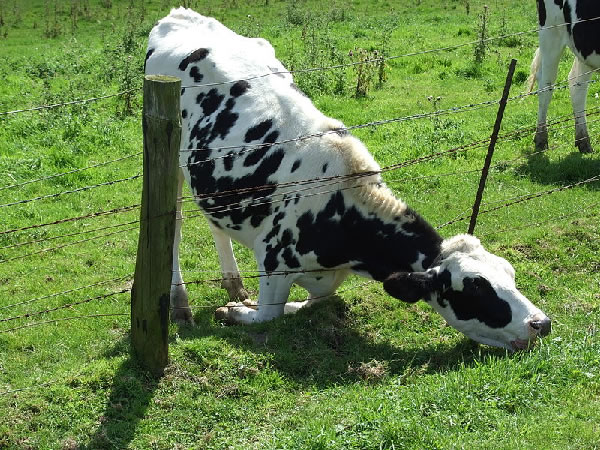Hello again! EcomのJennです。
I hope you are well today.
今日はまた、英語の諺を紹介したいと思います。
この名言は日常生活でも、映画でも、有名な曲でも出てきますよ。
第4回
「The grass is always greener on the other side.」
(向こう側の芝はいつも青い)
上の写真を見ながら、意味を想像してみましょう。
ある牧場で草を食べている牛が、フェンスの向こうを見ています。
牧場にはたくさんの草があるのに、なぜかフェンスの向こうの草が、もっと青くて美味しそうに見えます。
そこで牛は、フェンスを越えて向こうの草を食べようとします。
でも、一口食べたら自分の牧場の草と変わらないことに気がつきます。
つまりこのフレーズは、「実際はそうではないのに、他人のものはよく見えてしまう」という意味です。
皆さんは、こういう経験がありますか?
英語では例えば、以下の様な場面でこのフレーズを使います。
A:「You get to travel all the time and visit many places. Your job seems like so much fun.」
B:「The grass is always greener on the other side. I wish I could just work at the same office every day like you. I miss that stability.」
なお、たまに「The grass is not always greener on the other side.」というフレーズも聞きます。
意味は大体同じですが、他人の物がよく見えても実際にそうではない、という点を強調した表現です。
では、また次回!
See you again next time!







2 thoughts on “英語の名文、諺『向こう側の芝生は…』”
Hello Jenn, How are you?
I always look forward to reading your blog on the Facebook. I have a question. I wonder where I should check on the E-com website to read your interesting topics.
Anyway, I usually think that “The grass is always greener on the other side.” I guess we often think that “We should keep up with the Joneses.” I always admire a new car which my friend bought recently. I want to drive the car. And when my neighbor bought a hybrid car, I want to have it. When my friends bought iPod Air, I have to purchase it. Do we have to be superior to others in every aspect of life? Do we always have to bend over backwards to lead a better life than others? Should be always have to jump on the bandwagon to catch up with the fad? Does this desire to possess something new come from our greediness? But, I guess our desire to get something better has created our culture and launched new innovations. If we stick to the old way of thinking, we may not create anything new.
Hello Seiichi,
Thank you very much for your comment! Aside from Facebook, my blogs can be
found on http://myecom.net/english/blog/. I appreciate the fact that you always read them!
You bring up a very interesting point. Our desire to want newer and fancier things does breed advancement and invention, but I guess we need to be careful too. Some people might want the nice, fancy, expensive things their neighbours have, but end up “putting themselves in the poorhouse” in order to obtain them.